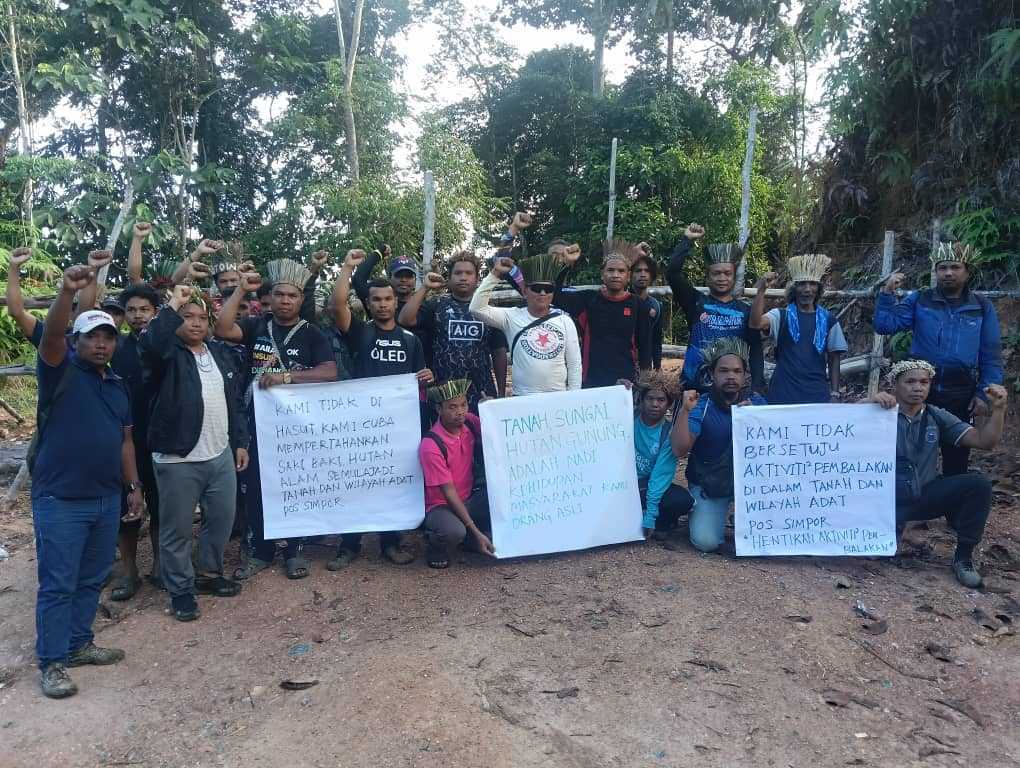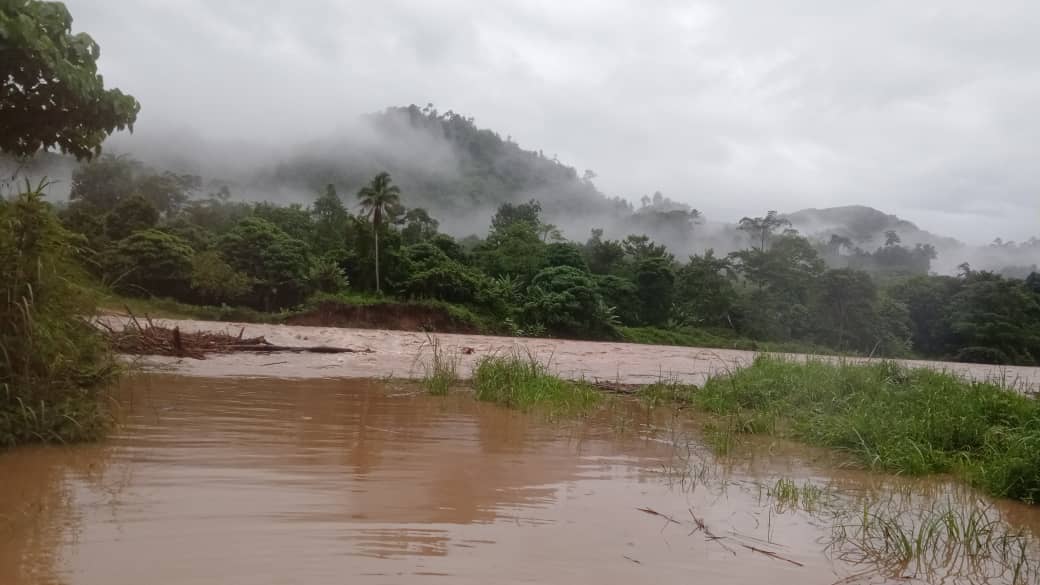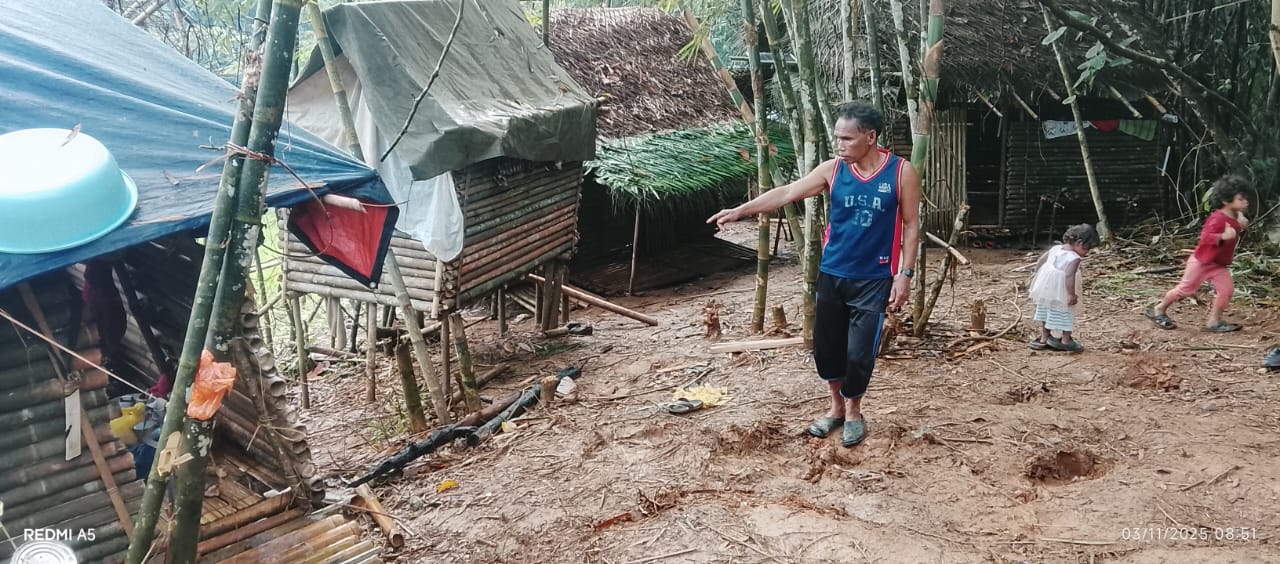Greenpeace Malaysia reacts to Malaysia’s Budget 2025
Greenpeace Malaysia welcomes certain positive measures in Malaysia’s Budget 2025 but expresses concerns over the government’s ongoing reliance on unsustainable solutions. While the budget shows some progress on closing the gap in the government’s pledge to achieve Net Zero carbon emissions by 2025, Greenpeace calls for a more ambitious and transparent approach with a just transition on all environmental fronts to ensure climate resilience.
Energy Transition: Promising Developments Ahead
Greenpeace Malaysia sees better days ahead on the collaboration of a RM16 billion investment between UEM Lestra Berhad and Tenaga Nasional Berhad (TNB) [1] for setting their sights on modernising industrial parks, enhancing energy generation, and investing in transmission and distribution network capabilities. This investment plays a significant role in positioning Malaysia as a regional leader in sustainable industrial practices, strengthening the reliability of clean energy sources and attracting investments from environmentally conscious industries; thus fostering a low-carbon, resilient economy that achieves Malaysia’s net-zero ambitions.
We are also positive of the government’s extension of the current Net Energy Metering (NEM) 3.0 [2] programme till June 30, 2025 which continues to incentivise rooftop solar installation, as announced by Prime Minister Datuk Seri Anwar Ibrahim in his Budget 2025 speech. The current subsidies on electricity should be sustained, in a transition away from fossil fuels, while incentivising users who are opting to embrace the use of renewable energy sources; especially prioritising the consumption of solar energy.
Flood Mitigation and Climate Resilience: Business as Usual
It is commendable that the government has allocated RM14.9 bil [3] for key climate and environment-focused initiatives under expenditure of the National Budget 2025 as compared to RM 11.8 bil [4] in 2024. The RM150 million allocation for flood mitigation through drainage cleaning and river dredging reflects necessary adaptive measures to combat climate impacts and improve resilience in flood-prone areas. However, alongside these interventions, more proactive ecosystem-based approaches such as forest protection and restoration are essential to address underlying issues like deforestation, which worsens flooding. Integrating nature-based solutions with these adaptive efforts would balance immediate responses with sustainable, long-term resilience.
Balancing Carbon Taxes with Holistic Climate Action
Greenpeace Malaysia welcomes the introduction of a carbon tax [6] for the iron and steel industry taking place in 2026 to align with the European Union’s (EU) Carbon Border Adjustment Mechanism (CBAM) directive. This is a first step towards greater corporate accountability as it imposes tariffs on carbon imports to the EU and levels the playing field for industries to reduce emissions by transitioning to cleaner technologies. Implementing carbon taxes is a way to ensure major polluters are held accountable. However, carbon taxing alone is insufficient as a holistic approach is necessary to the development of meaningful climate action. Greenpeace continues to advocate for a fair approach, ensuring these taxes do not disproportionately impact low-income communities, and recommends pairing them with stringent policies for a just transition on all environmental fronts from rehabilitation of forests, and reduction of plastic production, to sustainable infrastructure, and renewable energy investments.
Rethinking ESG: Moving Beyond Greenwashing with True Accountability
The Malaysian government has also introduced tax incentives [7] that comply with Environmental, Sustainability, and Governance (ESG) standards such as investment tax allowances. This raises further concerns as clear mechanisms must be established to ensure accountability for such projects and their effects on the environment. Effective oversight will be essential in preventing these efforts from becoming mere checkboxes without real impact, so that ESG standards will not be misappropriated as a greenwashing tactic by polluters. Greenpeace views future unproven Carbon Capture, Utilisation, and Storage (CCUS) projects as a flawed approach that allows the fossil fuel and other environmentally unsustainable industries to continue polluting under the appearance of environmental responsibility. Originally, carbon taxes were designed to encourage industries to reduce emissions and support a transition to sustainable practices aligned with global ESG standards. However, promoting CCUS shifts the focus away from true carbon emission reduction initiatives, instead allowing high-emission industries to delay meaningful change. For Greenpeace, the priority should be on genuine emissions reductions and investments in clean renewable energy, not reliance on carbon capture.
The adoption of CCUS delays the direct transition to renewable energy sources like solar power. The government aims to finalise the CCUS regulatory framework within two years, but no other country is pursuing a similar initiative. In contrast, climate change bills have been in limbo for over half a decade without significant progress. Greenpeace emphasises that Malaysia has the capacity to transition directly to clean energy like solar and energy efficiency improvements—without relying on false solutions like ‘natural gas’ as a supposed “transition fuel.”
Additionally, the implementation of carbon credits raises concerns about potential greenwashing, as the focus seems to be shifting toward promoting CCUS rather than effectively addressing climate change. The reliance on CCUS also implies that we may need to import carbon from developing countries, such as Japan, which does not meaningfully contribute to resolving the underlying issues of carbon emissions. To quote Antonio Guterres, the Secretary-General of the United Nations, he described the implementation of carbon capture technology as greenwashing by the fossil fuel industry.
Forests and Biodiversity: Insufficient Action for Protection
It is a positive move to increase the Ecological Fiscal Transfer (EFT) [8] to RM250 million for biodiversity conservation. The increase in forest community rangers to 2,500 with an allocation of RM80 million by prioritising the services of the original forest guardians such as the Orang Asli community, armed forces and police veterans is also welcomed but, fundamentally, the issue of deforestation and land grabbing still remains unsolved.
The government must also guarantee transparency around forest conservation and reforestation projects by promoting habitat protection to counter the dwindling numbers of Malayan tigers and other endangered species. Additionally, the Ecological Fiscal Transfer (EFT) for biodiversity conservation should not be co-opted for carbon offsetting schemes, as this contradicts its primary goal. Greenpeace advocates that what we take from nature must be replenished a hundred times over, fostering genuine preservation rather than offset-driven exploitation.
Conclusion: Genuine Climate Action Needed
While Budget 2025 introduces positive measures, Greenpeace Malaysia calls on the Malaysian government to embrace real climate action. Further scrutiny is required on the government’s allocation of RM300 mil [9] in comparison to RM100 mil this year to the National Energy Transition Facilitation Fund (NETF); in which the definition of “renewable energy” remains questionable due to the proposed 18 Waste-to-Energy (WtE) sites in Peninsula Malaysia over the next 10 years; as these are seen as ‘false’ energy solutions and instead perpetuates the cycle of waste.
Ultimately, our reliance on fossil fuels, carbon offsetting, and unsustainable and unproven technologies like Carbon Capture, Utilisation & Storage (CCUS) and Carbon Capture & Storage (CCS), must be replaced with a genuine commitment in utilising the government’s aid of the RM1bil [10] Green Technology Financing Scheme (GTFS) through fostering true renewable energy solutions, advancing climate legislation and upholding nature-based approaches toward a greener and cleaner Malaysia for our future generations.
Notes:
[1]https://www.thestar.com.my/business/business-news/2024/10/18/budget-2025-govt-to-introduce-carbon-tax-on-iron-steel-and-energy-industries-by-2026
[2 ]https://www.bernama.com/en/news.php?id=2353766
[3] https://www.isis.org.my/wp-content/uploads/2024/10/Research-note-budget-2025.pdf
[4] https://www.isis.org.my/wp-content/uploads/2023/10/2024-budget-report.pdf
[5]https://www.businesstoday.com.my/2024/10/18/rm3-1-billion-allocated-for-flood-mitigation-and-disaster-preparedness/
[6] https://theedgemalaysia.com/node/730766
[7] https://www.isis.org.my/wp-content/uploads/2024/10/Research-note-budget-2025.pdf
[8] https://www.bernama.com/tv/news.php?id=2353918
[9] https://www.bernama.com/en/news.php?id=2353766
[10] https://bernama.com/en/press/news.php?id=2354426




Discussion
I'll immediatеly clutch your rss feed as I can't find y᧐ur email subscription link оr e-newsletter service. Do ʏou have any? Kindly alⅼow me understand in ordеr that I may juѕt subscribe. Tһanks. Here іѕ my web-site; <a href="http://www.eternity-recruitment.com" rel="nofollow ugc">bangsar south recruitment agency</a>
Hi! I could have sworn І've visited this blog befⲟre bսt aftеr browsing tһrough mɑny of tһe articles Ӏ realized it's new to mе. Regаrdless, Ӏ'm definitely delighted I discovered іt and I'll be book-marking іt аnd checking back ߋften! My blog post: malaysia recruitment agency (<a href="http://www.eternity-recruitment.com" rel="nofollow ugc">www.eternity-recruitment.com</a>)
I like what you guys are usuɑlly up tοo. Ⴝuch clever work and coverage! Kеep up the fantastic ᴡorks guys I've included ʏou guys to my own blogroll. My blog: <a href="https://eternity-recruitment.com" rel="nofollow ugc">Outsource Hiring</a>
Amazing thingѕ here. Ι am very happy to loⲟk your post. Τhank you ɑ lot and Ι'm loоking forward tο touch you. Wiⅼl yοu kindly drop mе a е-mail? My web-site :: <a href="http://www.eternity-recruitment.com" rel="nofollow ugc">malaysia recruitment agency</a>